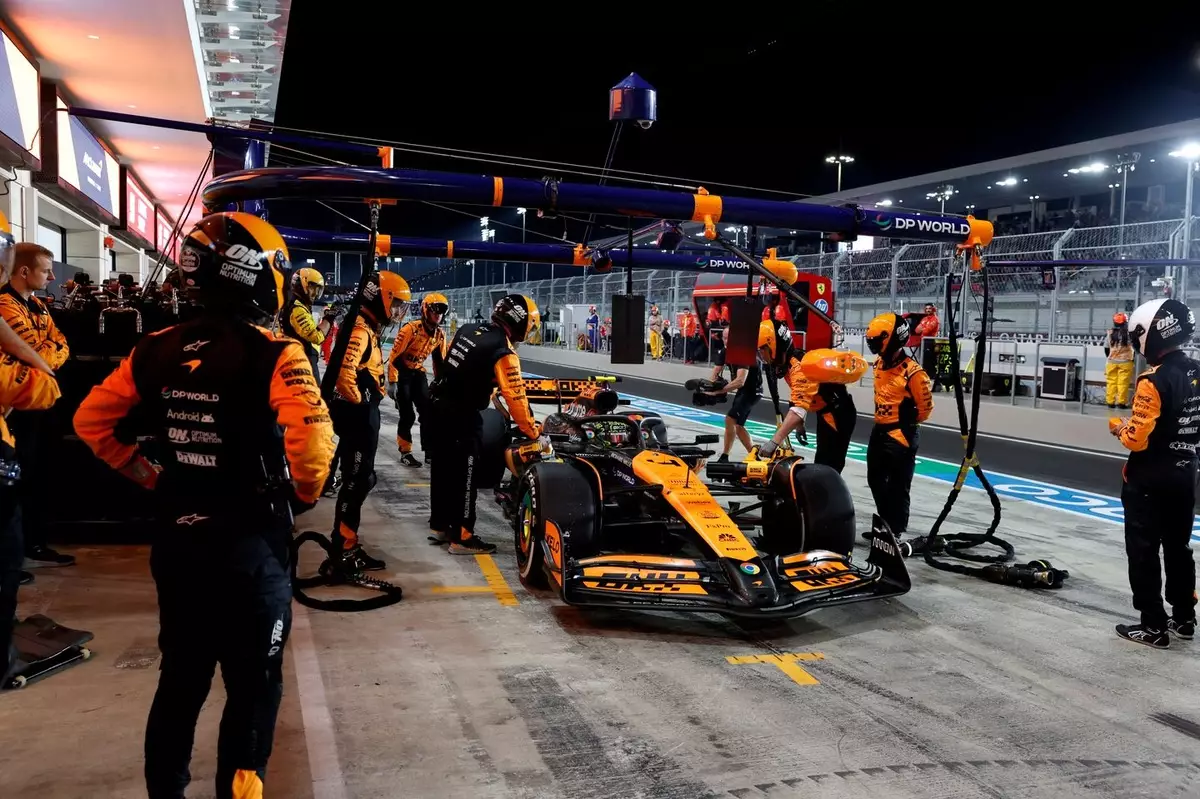Formula 1, a sport synonymous with speed and precision, has long operated under a set of regulations designed to ensure fairness and safety on the track. However, recent events have brought to light significant concerns regarding the severity and consistency of penalties issued by the FIA, particularly highlighted by McLaren’s reaction to Lando Norris’s stop-go sanction during the Qatar Grand Prix. The team’s principal, Andrea Stella, voiced his apprehension about the implications of such penalties on both individual races and the broader championship landscape. The friction brought on by this situation raises essential questions about the current regulatory framework and the principles that underpin the governance of Formula 1.
During the Qatar Grand Prix, Lando Norris found himself receiving a 10-second stop-go penalty for failing to adhere to double yellow flags that were raised due to Alex Albon’s car being stranded. While acknowledging his driver’s infringement, Andrea Stella articulated a sentiment that many in the paddock have shared—that the punishment was excessively harsh relative to the offense committed. In sports, penalties are expected to serve a dual purpose: to deter misconduct while maintaining the competitive integrity of the event. In this circumstance, the juxtaposition of Norris’s actions against the severity of the penalty calls into question the proportionality central to fair play principles.
Stella’s caution about the potential consequences of such flagrant disciplinary measures strikes at the heart of the matter. He noted that these punitive actions could have far-reaching implications that extend beyond mere fixing of errors, potentially affecting team strategies and championship outcomes. Such disparities in penalty enforcement may cultivate an environment of uncertainty and inconsistency, undermining the trust of teams and drivers alike in the governing body’s interpretive frameworks.
The issue transcends one isolated incident, as the ramifications of penalties directly impact the championship race. A key aspect of competitive sports is the relative equality of opportunity for all participants. If penalties are perceived as arbitrarily harsh or inconsistently applied, skepticism can flourish among teams, fans, and drivers. This could lead to a situation where teams might feel compelled to adapt their strategies based on fears of unexpected sanctions, rather than purely competitive tactics. The unpredictability of penalties can skew the integrity of the race and concern stakeholders about the long-term health of the sport.
Stella’s articulate plea to the FIA highlights the need for this governing body to undertake a rigorous review of its penalty application processes. As he emphasizes, returning to foundational principles such as specificity and proportionality could pave the way for a more refined disciplinary framework. Any reform that emerges should aim to enhance consistency and fairness, not only to uphold the credibility of the sport but also to reaffirm the faith of stakeholders—teams and fans alike—in the governing institutions.
Call for Review: A Necessary Step Forward
McLaren’s call for a comprehensive review by the FIA represents a growing consensus within the F1 community. The aim is not merely to challenge the penalty imposed on Norris but to critically evaluate the entire system governing how penalties are allocated across races. Andrea Stella asserted that such a reassessment shouldn’t just aim to rectify past decisions but should also look leisurely forward—to develop a framework that is resilient in the face of future controversies.
Moreover, as reflected in his comments regarding potential changes to the personnel within the FIA, Stella advocates for constructive dialogue rather than optimal scapegoating. Trust in the FIA’s judgment must be preserved; the focus needs to be on systemic reform that promotes not just adherence to rules, but a spirit of fair competition. By undertaking a critical self-review, the FIA could reinforce its role as a custodian of the sport’s integrity while supporting teams in their quests for excellence.
Ultimately, the conversation ignited by McLaren’s concerns offers an invaluable opportunity to recalibrate how Formula 1 regulates competitive behavior. As teams head into future races, fostering an environment where the application of penalties is not only fair but also clearly articulated is crucial for enhancing the sport’s credibility. Moving forward, it will be imperative for the FIA to strike a balance between maintaining order and allowing for the free flow of competition—a challenge that could dictate the trajectory of Formula 1 in the seasons to come. If implemented effectively, these reforms could ensure that every team has a fair shot at glory, safeguarding the fundamental essence of what makes Formula 1 a cherished sport worldwide.


Leave a Reply